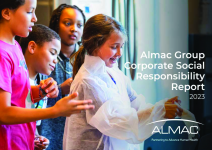ACRO, Dana Farber seek more info on FDA informed consent draft guideline

Both ACRO and Dana Farber go farther than previous commenters in terms of detail, though ACRO echoes the earlier comments on what the draft fails to include, while Dana Farber calls for a number of revisions.
E-Informed Consent
ACRO suggests that the agency significantly expand discussion in any final guidance “to include the rapidly growing importance and role of mobile technology – iPhones, iPads, and apps – in the informed consent process.”
Companies offering the electronic devices as part of the consent process previously explained to us the improvements that the devices have made on the industry in terms of patient knowledge and ease of use.
“Because such new technologies can include electronic, interactive quizzes to assess understanding and comprehension, the Agency has missed an opportunity to not only examine more thoroughly various alternative, electronic methods of obtaining informed consent, but also to examine how new technologies such as animated video, graphics, and interactive quizzes could simultaneously resolve some of the understandability and comprehension concerns,” ACRO says.
Central IRBs
ACRO also criticizes the FDA for not discussing central IRBs at more length in the guidance, especially in terms of multicenter trials, as the only reference the agency makes to them is in reference to 2006 guidance.
“In order to drive efficiency in the ethics review process via the use of central IRBs, the FDA might consider requiring Sponsors who are seeking to develop a new product under the Breakthrough Therapy designation to agree to use only research sites that will accept mutual recognition for central IRB review of multi-site trials or, at a minimum, commit to IRB review within a stipulated period of time (e.g., 30 days),” ACRO says.
Alternative Treatments?
Dana Farber takes issue most forcefully with the FDA requiring the disclosure of alternative treatments, including “a description of any reasonably foreseeable risks or discomforts and potential benefits associated with these alternatives.”
“We strongly recommend that FDA not adopt this position, for several reasons,” Dana Farber says. “First, it will make consent forms very long when the research involves a disease with many options for treatment, and would be likely to create confusion for research subjects. For instance, disclosing the risks and benefits of all drugs approved for the treatment of arthritis would take many pages.
“Second, disclosing the risks and benefits of the research against all of the risks and benefits of alternative courses of treatment might dilute the risks and benefits of the research,” Dana Farber says. “Third, it imposes an additional responsibility on investigators to continue to update research consent forms to account for new research opportunities and describe the risks and benefits of those alternative treatment options.”
Dana Farber also takes issue with FDA’s stance on payments for subjects as the agency says it considers such payments “to be compensation for expenses and inconveniences, not a benefit of participation in research.”
However, Dana Farber says that this seems “contradictory to previous FDA Guidance…which notes that ‘financial incentives are often used when health benefits to subjects are remote or non-existent.’ When individual subjects who are healthy volunteers are paid to participate in phase I trials it is difficult to not see the compensation as a benefit for participation in research.”
The cancer institute requests FDA address how clinical investigators and sponsors can avoid illegal promotion of medical products when providing aggregate results to subjects, “as this would greatly contribute to sponsor's comfort with providing such results to subjects.”














